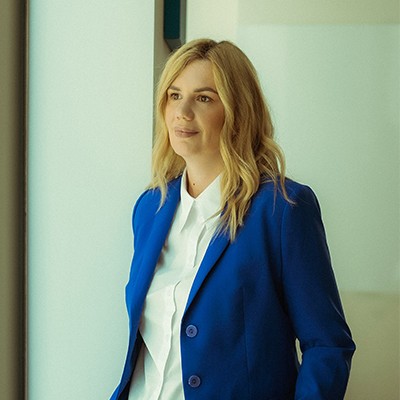Mary Poliakova
Co-founder & COO at Drofa Comms

Do you educate external audiences on crypto?
How do you approach it?
Absolutely. At Drofa Comms, educating external audiences is a core part of our job, especially since we are involved in PR and content creation for crypto companies. As the crypto industry is complex, we prioritise educating our employees on related topics to ensure that the content we produce is accurate, understandable, and efficient. We regularly organise training sessions and make sure they stay up to date.
But our role in education, of course, extends beyond our team. The content we create for clients is published in major media outlets, so it reaches wide audiences. And as we run PR campaigns for market leaders, we are actively shaping the future agenda of the financial world by spreading their voices and opinions. When crypto companies share high expert-level opinions and information, our main task is to simplify it, making it accessible to a wider audience. This process is crucial because it ensures that complex ideas—like those behind blockchain and DeFi protocols—are accessible and understood by the public and journalists alike.
Speaking about journalists, namely those from TradFi, our consistent communication lets us shift their perception of cryptocurrencies. By discussing DeFi and TradFi together, we are able to educate them and give a better understanding of the crypto space.
So by educating our own employees and engaging with journalists, we contribute to public understanding by comprehensive media coverage—as a bridge between crypto-experts and the world.
Has the market changed in terms of crypto knowledge in the past years? What do you think caused this change?
It definitely has. Interestingly, around 7 years ago, we and our clients faced difficulties because of limited communication channels in the crypto space; this even caused a lack of knowledge of target audiences. Today, our PR efforts have become more effective thanks to the large increase in trusted crypto-related media sources. What’s more, if before only crypto-specific publications were covering the topic, now the world’s leading media actively track the cryptocurrency market too, recognising its growing importance in todays’ world.
Also, a few years ago, discussions about cryptocurrencies were often filled with difficult technical language that limited public understanding. Now, there has been a noticeable shift towards more simplified terms, in which we are actively involved too, as I mentioned earlier. This is crucial as it allows for greater engagement with a wider audience that may not have technical knowledge but wants to understand the basics.
The overall tone has changed as well. Cryptocurrencies were often viewed with scepticism, often associated with risk and negativity. Today, the conversations are more balanced and cryptocurrencies are discussed alongside TradFi solutions. I believe this change is due to the maturation of the market and increased institutional interest but also because of the growing number of people who are now familiar with crypto and its potential benefits. This has helped create a more positive narrative around cryptocurrencies, positioning them as valuable tools for financial innovation.
What channels and tools do you use? Is there something that you think should be done differently in regard to crypto education on a more general level, meaning the sector as a whole?
When it comes to educating external audiences, our main tool is media publications. Through comprehensive and well-positioned texts, we help shape public awareness. We also leverage social media platforms and, of course, such initiatives as this one, CryptoEdu. Using diverse tools allow for both mass education and more targeted outreach to specific audience segments.
On a more general level, I think the crypto sector as a whole will definitely benefit from collaborating with educational institutions. While some universities are beginning to incorporate crypto into their curriculum, it is often limited to “new technology”-focused programs. However, it should be integrated into all financial specialisations. It is no longer just a niche subject—it is becoming a vital part of everyday financial systems since we live in a digital era. There is still a gap in broad understanding, and by investing in more structured educational efforts, the industry can close this gap while building trust.